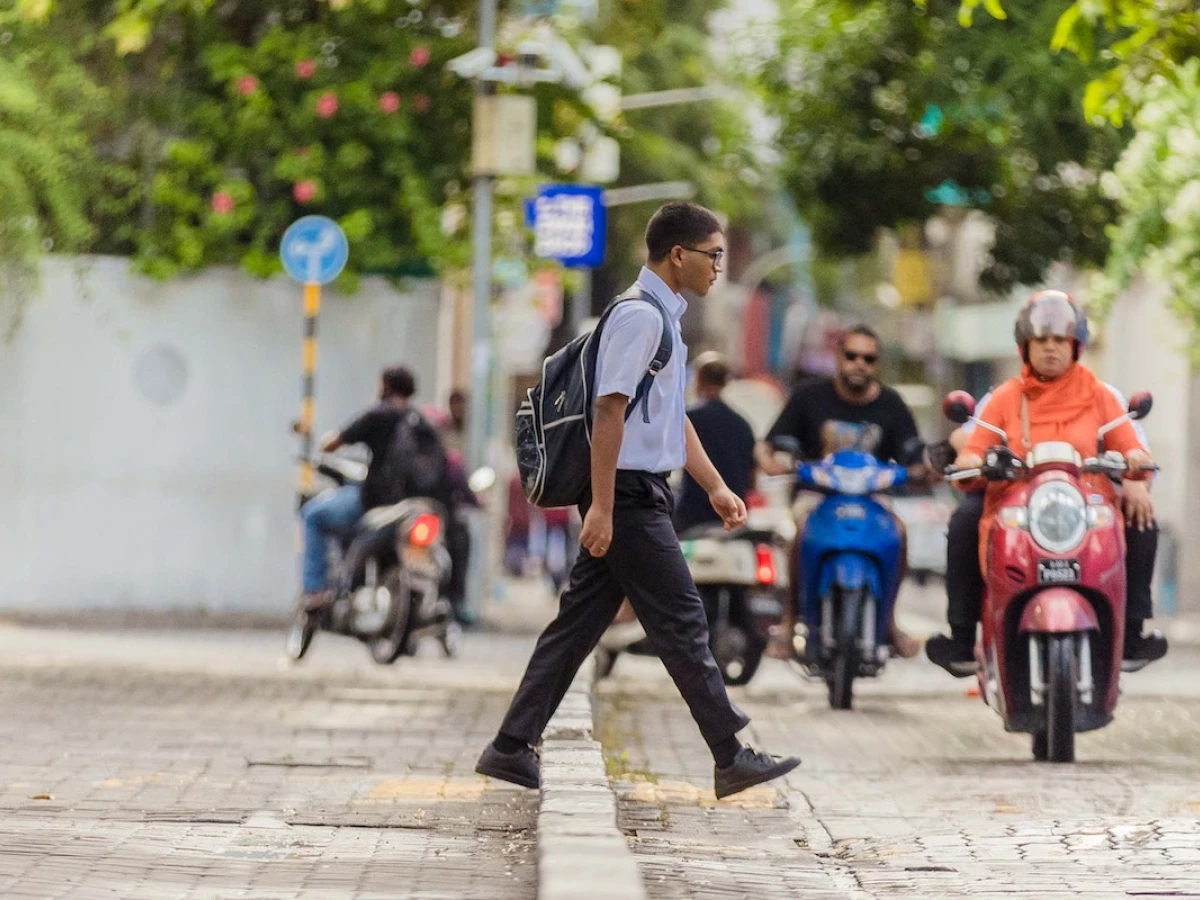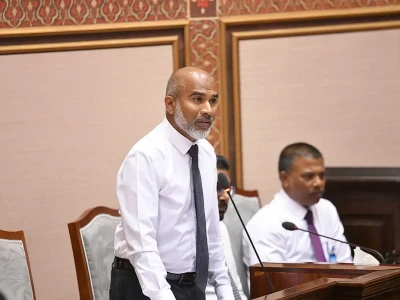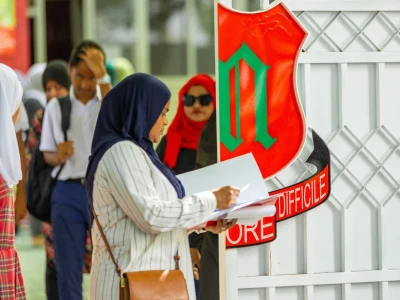
Dr Hassan Hameed’s take on Cambridge O-Levels, A-Levels
"As long as students take part in foreign exams, the curriculum too will be controlled by those foreign parties," he said.
By
Aminath Shifleen
This year has once again brought about a historic change in the education sector.
After a lot of discussions and debates, the UK's Edexcel A Level examinations have been changed to Cambridge exams in the Maldives. However, the reasons for such a change and the details of the results are still unclear to many.
Chancellor of Maldives National University (MNU), Dr Hassan Hameed, an expert in the field and one who has been actively involved in conducting examinations, has published a detailed research document on the matter.
Prior to Edexcel, Hameed said that Maldivian students first sat for the University of London Examinations and Assessment Council (ULEAC) exams. Maldivian students first took part in the exams in 1968, and they were conducted here for 28 years.
The exam was finally changed by the merger of 'BTEC', which is another UK centre hosting ULEAC and business and technical subjects, which followed the establishment of the 'Edexcel' company in 1996. The company became the largest business of the field in 2004 under the name Edexcel Pearson.
Hameed wrote that since then the Maldivian government had been brainstorming about what could be done to certify education with a better institution. As the major issues that brought up this need for change, Hameed noted the increasing poor quality of the exams and the difficulty of maintaining communications with Edexcel. The government finally decided to shift from Edexcels to Cambridge examinations for O-Levels.
DHameed noted that the most support for this venture came from the then school principal of Aminiya School, Amal Ali. He also said that Fathimath Amira, who served as the Principal of CHSE for nine years, also contributed.
In reference to the comments from these two educational experts, Hameed provides:
-
Amal discovered that the Maldives is the top market for Edexcel summer exams.
-
Only 3% of the students who sit for these exams pass in the English language; not very applicable to the community.
-
Amal supported Cambridge for its assistance in teacher training and marking schemes they provided for the exams.
-
Amira said that one of the reasons Maldives shifted from Edexcel to Cambridge was because Cambridge was cheaper.
-
She noted that the failure of a large number of students in exams that were sought at high prices was an economic loss.
-
Before the transition to Cambridge in 2003, an average of 30% of students passed the 2002 Edexcel exams.
Hameed also supports this transition:
-
Cambridge exams are more adaptive to modern day changes than the Edexcel exams; there are important topics in Cambridge syllabus that are not available in Edexcel.
-
At the time, study guides and other aids that support the Cambridge syllabus was readily available from Singapore, who themselves conducted Cambridge exams in their schools and was a popular trade destination for Maldives at the time.
-
Private companies like Edexcel were far too motivated to increase their own profits and brand recognition that it reduced our confidence in the exams of such companies.
Why not also shift A-Levels to Cambridge?
Hameed said that this question has been raised on several occasions since the O-Level exams were changed to Cambridge. Hameed believes that it is only logical that two levels of consecutive examinations came from the same source; it would be more closely related and can facilitate the transition from grades. However, the biggest obstacle in transitioning A-Level exams to Cambridge was the practical exams.
However, this changed too. Since 2009, the Centre for Higher Secondary Education (CHSE) has been taking part in the written exams instead of practical exams. Hameed said at that point, discussions on the examination standards were opened to the public.
Hameed informs that Cambridge had also come to the Maldives to pitch their A-level examinations. This transition was extensively discussed at the Curriculum Symposium in 2019, following the implementation of the New National Curriculum of the Maldives. Even before the government decided to transit from Edexcel to Cambridge, private schools like Arabiyya School, Billabong School and Brightway International were already doing Cambridge O-Levels and A-Levels.
Expert in the fields of assessment and evaluation, Hameed had also conducted several workshops as a teacher trainer. Based on his experiences, he noted some important factors in the exam evaluation process:
-
No matter how much effort is put into it, it is nearly impossible to create two exams at the same level on one subject in two consecutive years.
-
Taking into account this level of distinction, the results are correlated with previous years using special calculations, which is called standardisation.
-
As a result of the standardisation, the highest scores and the lowest scores remain at the same levels. Students who score 'A' grades will remain at a similar percentage every year.
"The point I’m making here is that changing the company issuing the exams will not affect the exams," Hameed said.
He has also illustrated the difference in prices in the Edexcel and Cambridge A-Level exams. Edexcel fees cost twice as much as Cambridge, and the price of different subjects differ. On the other hand, he noted that the price of Cambridge is lower and that all subjects are quoted at the same price. For examples he mentioned the figures of the mathematics exam this year, where Edexcel charged GBP 166 (MVR 3,010) and Cambridge charged GBP 81 (MVR 1,469).
In Hameed’s learned opinion, it is important for the Maldives to conduct its own exams. He said that the local educational experts have been discussing creating the lower secondary or O-Level exams in the Maldives for over 30 years now. He noted two advantages of creating the exams in the Maldives:
-
Since the curriculum is controlled by the exams, if the Maldivian exams were produced locally, the curriculum will directly cater to the lives, specialities and future of Maldivian students.
-
As long as students take part in foreign exams, the curriculum too will be controlled by those foreign parties.
The biggest counter-argument to Hameed’s vision is the doubt that locally produced exams would not be accepted by universities abroad. Hameed responded to this argument saying that since all the educational institutes around the world have become profit-minded business enterprises today, he was confident that they will accept Maldivian qualifications without any hesitation.
"Parents who do not support national qualifications can enrol their children in foreign examinations at their own expense. After experiencing lower secondary level examinations made locally, we can move on to producing our own A-Level examinations as well”, Hameed said.




